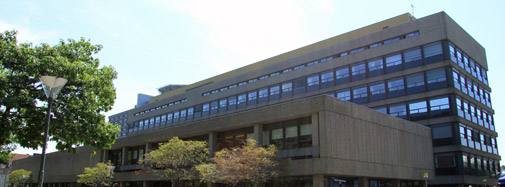About the department

The Department of Forensic Medicine carries out forensic examinations for the police, the courts and other authorities in Denmark, Greenland and the Faeroe Islands.
Forensic examinations in Denmark are carried out by universities in Copenhagen, Aarhus and Odense. This is to ensure that they are carried out independently of the judiciary and to ensure that they are of high professional and scientific quality.
Forensic examinations are an important factor in many court cases and decisions made by the Danish authorities.
Organization
The Department of Forensic Medicine is led by Niels Lynnerup, MD, DMSc and is divided into three sections: Section of Forensic Chemistry, Section of Forensic Genetics and Section of Forensic Pathology (which also includes the Laboratory of Forensic Anthropology). Each section undertakes research and teaching in their own fields.
Section of Forensic Pathology
The section handles forensic examinations of the living and dead for the police districts in Eastern Denmark. The forensic examinations of the dead include, among other things, site investigations, medico-legal examinations and autopsies. Examinations of the living are personal examinations of victims and suspected perpetrators. The department also conducts forensic anthropological studies of bones and human remains. The section has approximately 80 employees, including doctors, dentists, forensic anthropologists, secretaries, forensic and laboratory technicians.
Section of Forensic Genetics
The section serves as the national laboratory for DNA analyses in criminal, paternity and family reunion cases commissioned by the police, the judicial system, government authorities, the Danish Immigration Service, etc. It does not perform genealogical analyses for private individuals. The section employs some 110 people, including forensic geneticists, laboratory and secretarial staff and IT developers.
Section of Forensic Chemistry
Our primary practical duty is to carry out toxicological analyses of biological samples. These samples may consist of blood, urine, hair, and various forms of tissue. We also analyse non-biological materials such as tablets, powders or other objects to determine whether they contain drugs. The section has around 40 employees which includes forensic chemists, PhD students, laboratory technicians, IT developers and secretaries.
Administration and Internal Service
The administration is a support function for the forensic sections and is responsible for the administrative, financial and operational framework for the entire department.
To ensure security in relation to data, the department has its own separate IT network and therefore its own IT unit. Similarly, we have our own cleaning unit to ensure both quality and confidentiality.
We handle all common administrative tasks such as management of the economic agreement with the National Police, coordination of HR matters, access control, procurement, health and safety, etc. There are a total of 35 employees in the administration.
